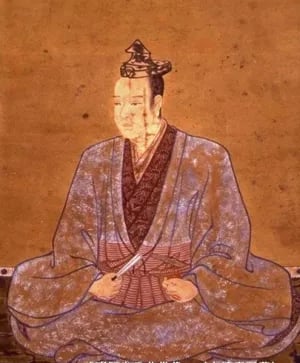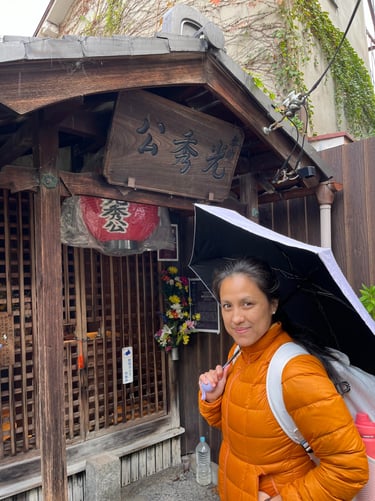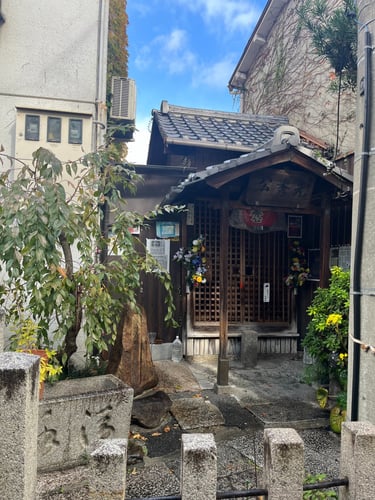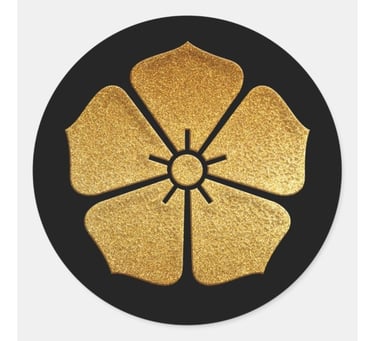A Ronin Story: Akechi Mitsuhide
A re-examination of a controversial figurehead of the Azuchi-Momoyama period and why there is more to him than the one act that turned him into one of the most well-known traitors in history.
Kristin Nakagawa
1/23/20254 min read


One of my favorite historical figures is a warrior who has largely been painted as a traitor. Akechi Mitsuhide, a Sengoku period warlord, is most notable for his murder of the first great unifier of Japan Oda Nobunaga.
What is less known about him is that he was a ronin, a masterless warrior, for about ten years after losing in a bloody family feud and fleeing the family’s lands. Although ronin are usually seen as men of ill repute since they do not adhere to recognized societal norms, he honed his skills in the medical, martial, and performing arts, eventually gaining notoriety as a man of some prowess.
By the time he had murdered Nobunaga at Honno-ji 26 years later, he had established himself as a capable military commander, gaining land and a castle as rewards for his considerable successes. Unfortunately, he was unable to garner the support of enough vassals in time to take national power for himself, and he was ignominiously executed.
Ultimately, yes, Mitsuhide lost. But what if he had managed to pull off this very risky move and win supreme power? Japan and its governance, the ways we interact with its country and its people now, would have looked very different.
Typically, a traitor’s story is used as a token of fearmongering, a cautionary tale of how not to behave, lest you meet a similar pathetic end. What I see in Mitsuhide, however, is a figure with the courage to meet adversity and challenge. As a man who did not idle and let outside circumstances determine his path, he was willing to wait patiently for a decade and build himself up until more fruitful opportunities and connections presented themselves. Additionally, he had a high degree of personal integrity, loyalty, and honor. Before Mitsuhide marched on Honno-ji, he had served Nobunaga to the fullest of his capabilities, and there had been no murmur of pending treachery.
The details of Mitsuhide’s motives for subduing Nobunaga and the nature of his own death remain mysteries shrouded in conjecture. Therefore, it is difficult to judge him and simply dub the treason as a net evil. What can be known is that his role in the unification process and government of Japan was critical. He incited other key players of this time to action from that one event and set the stage for the next two great unifiers to ascend to power.
Mitsuhide’s most resounding legacy to Japan is his willingness to serve. He used his talents and resources to serve the larger vision of unifying the nation and establishing peace that its people had not known for hundreds of years. Though he died pursuing a version of that peace he thought he could achieve himself, he initially signed up to serve Nobunaga with that vision in mind.
What we can take from Mitsuhide’s example is an understanding of where we might dare to live into a greater vision for our world. If you had the courage to act on your principles and desires despite what others may say of you, what could be possible for you and this world we are part of?
Afterward
Further highlighting Mitsuhide’s ignominious ends,
here is a kubizuka in Kyoto erected to house what is
claimed to be his head.
More things to admire about Mitsuhide:
He had a genuine relationship with his wife, Tsumaki Hiroko. He kept no additional wives or mistresses, which was atypical of warlords during this period.
He abstained from alcohol as a personal commitment.
He did not boast of himself, though his peers envied his talent and achievements.
A patron of the arts. An avid poet, he regularly composed poems and participated in renga events.
A master of the tea ceremony.






Me visiting Mitsuhide
11.24.2024
Empowerment
Transform your mind , and call in your desired outcomes today.
Connect With Me
Sign Up For the Ronin Newsletter
knakagawa@wealthoftheronin.com
+1(661)401-6684
© Copyright 2024. | Wealth of the Ronin | All rights reserved.
